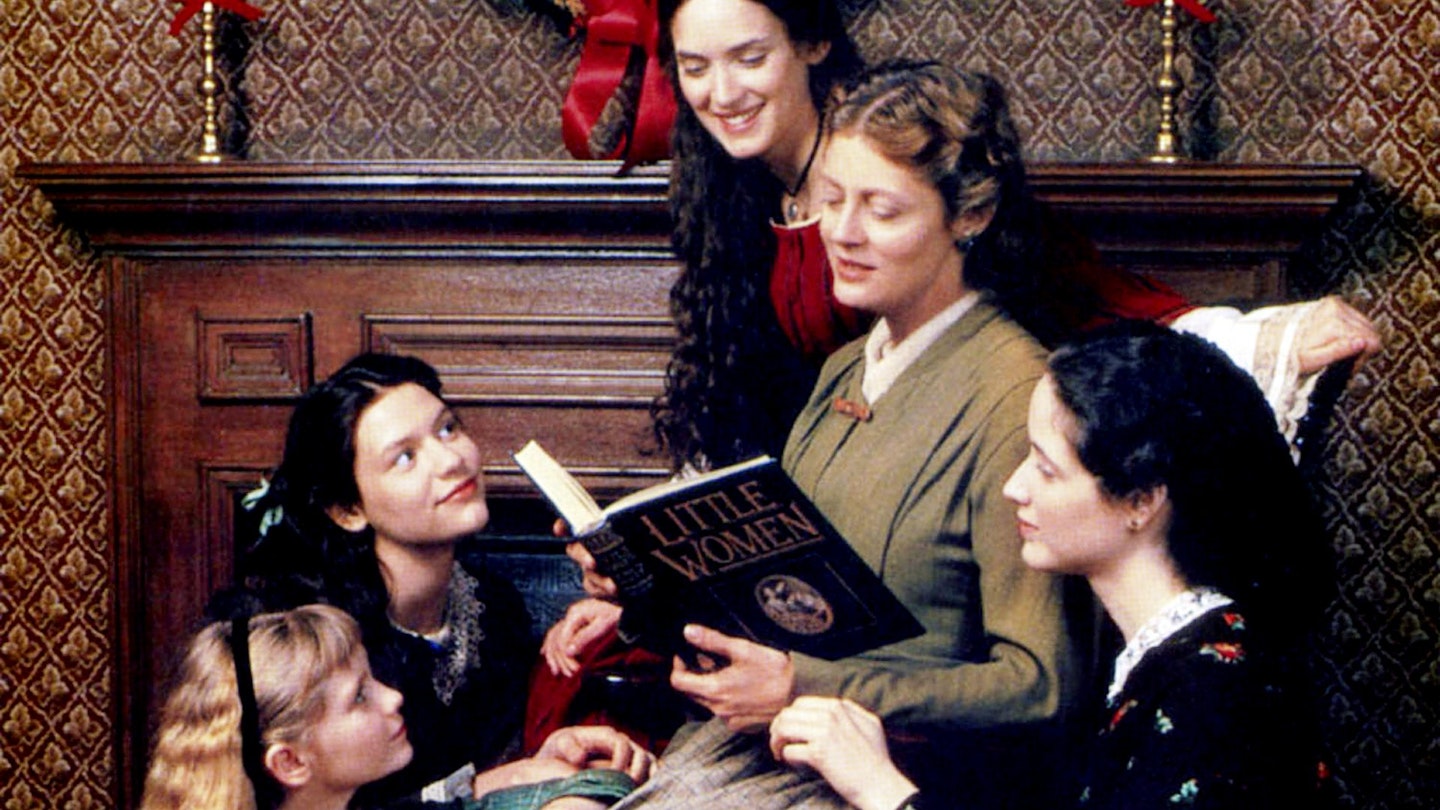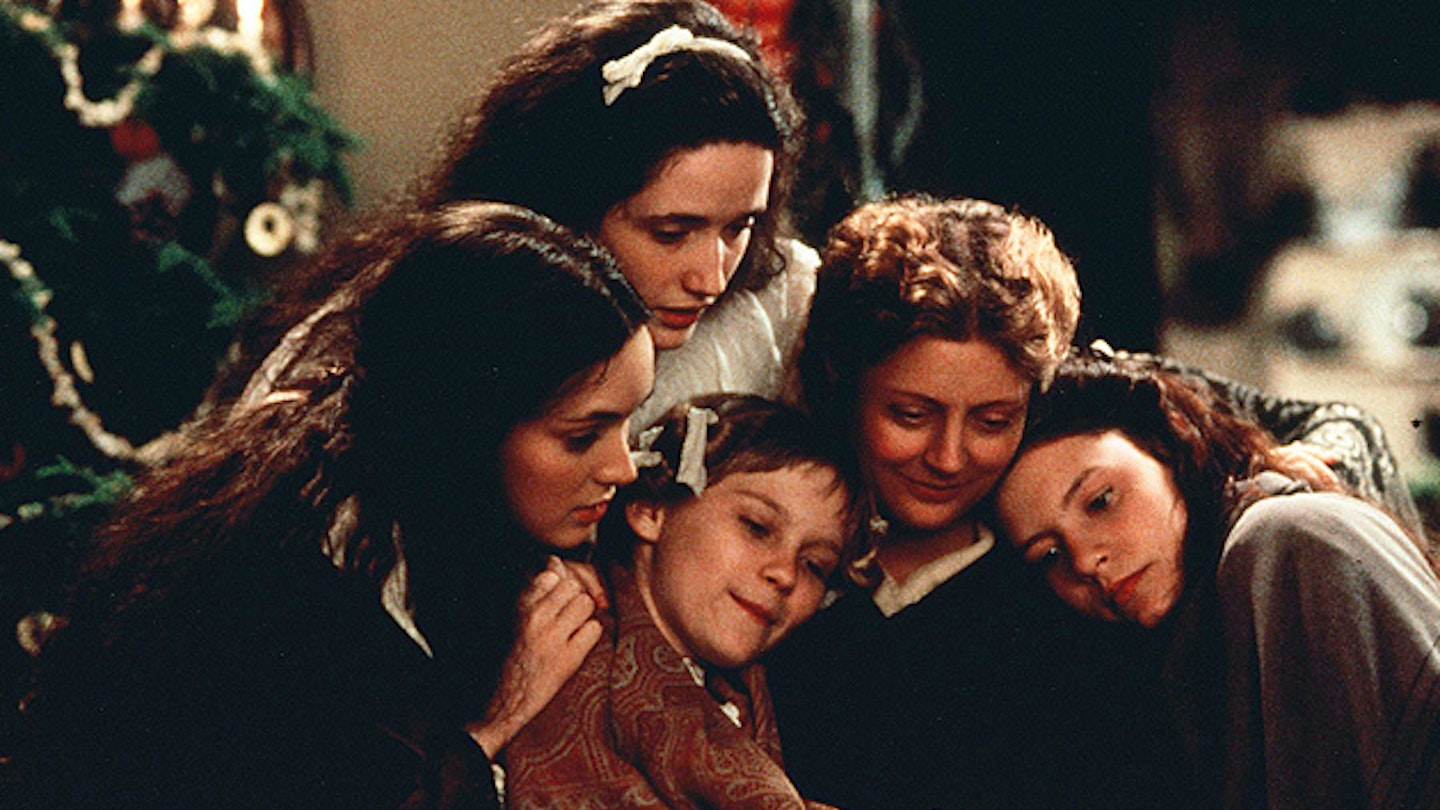Louisa May Alcott's perennial charmer, an autobiographically inspired classic of American girlhood, has been filmed periodically as an actresses showcase, notably George Cukor's superb 1933 version starring Katharine Hepburn and the more syrupy 1949 movie with Margaret O'Brien and Elizabeth Taylor.
Pretty and quaint for the 90s but still compelling, it's a character-rich, incident-packed story set around the four March girls: the beauteous Meg (Trini Alvarado); the fragile Beth (Claire Danes); the vain, emotional Amy (played at 12 by the precocious tough-act-to-follow dynamo Dunst, and at 16-plus by the comparatively wan Samantha Mathis); and, particularly, the spirited, life-embracing Jo (Ryder). They may be poor, but they have the advantage of a wise and womanly role model in their mother (Sarandon), prophet of the New Woman.
Opening in New England during the Civil War and spanning the 1860s, it's beautifully mounted to capture the age and the passing seasons, though director Gillian Armstrong never lets the production values overwhelm the gentle sketches of girlish hopes and pastimes tempered by the trials of life.
The team fielded as supporting men is an attractive one too. Eric Stoltz appears as Meg's hard-up but refined suitor; Christian Bale is utterly huggable as the boy next door, Laurie, whose adoration of the colourful March family focuses on Jo; and, as the older, impoverished immigrant Professor Bhaer, a fine Byrne - the first to play this pivotal character with clear attractions besides the intellectual to explain Jo's fervent admiration of him.
Families who flocked to The Secret Garden will be more than satisfied with the values and virtues so entertainingly expounded here. Fellas who dote on Winona should be pleasantly surprised, as well as subject to some moistness around the eyes.

